Rates and Tariffs
Billing Terms and Definitions
BTU Factor
A British Thermal Unit (BTU) is a measure of the heat content in a fuel source. It is the quantity of heat required to raise the temperature of one pound of water by one degree Fahrenheit.
CCF
CCF stands for “centum cubic feet” which means 100 cubic feet or 748 gallons of water. The volume of gas used is measured in CCFs.
Energy Factor
The heating quality of natural gas can vary. To compensate for this, the volume used is multiplied by the energy factor to show the actual heating value of the gas supplied by Cascade Natural Gas. The Company bills the customer for units of heat, not for volumes of gas.
Pressure Factor
A pressure factor is used to compensate for higher-than-normal delivery pressures when determining the volume of gas delivered to a customer’s location. The standard delivery pressure for natural gas is 0.25 pounds per square inch (PSI).
Rates
The rates charged on your gas bill have been approved by the Public Utility Commission in the state where you receive service. Copies of current rate schedules are available at www.cngc.com. A copy of a current, proposed, most recently canceled or superseded tariff page is available by contacting customer service either by phone or in writing.
Therms
Therms measure the actual heating value of the natural gas delivered to the customer. One therm equals 100,000 British Thermal Units (BTUs). The number of therms used is determined by multiplying the volume of natural gas used by the Energy Factor and Pressure Factor.
Itemized Charges on your Bill
- Basic Service Charge: The Basis Service Charge covers a portion of the fixed costs associated with meter reading and billing. This charge is the same each month regardless of the amount of natural gas used.
- Delivery Charge: The Delivery Charge recovers the cost to deliver natural gas from the interstate supply pipeline to a customer meter.
- Average Cost of Gas: The Average Cost of Gas is the sum of the following costs:
- Cost of Gas: This charge is the cost of natural gas as listed in the rates schedule on which you receive service (e.g., Schedule 101, residential and Schedule 104, Small Commercial).
- Temporary Cost of Gas This price is the adjusted cost between forecasted gas costs and actual gas costs. This rate is generally updated on a 12-month cycle. (See Schedule 191, Temporary Gas Cost Rate Adjustment.)
- Intervenor Funding: This Commission-required charge recovers the cost for third-party advocates to participate in the company’s regulatory proceedings. (See Schedule 192, Intervenor Funding Adjustment.)
- Conservation Alliance Plan Adjustment: This charge is updated every 12 months to either credit or collect the difference in forecasted and actual costs to serve customers. The variance is generally attributable to changes in the volume of natural gas sold due to increases in energy efficiency or extreme weather. (See Schedule 193, Conservation Alliance Plan).
- Environmental Remediation: This charge recovers environmental remediation charges. (See Schedule 197, Environmental Remediation Cost Adjustment.)
- EDP Recovery: This charge recovers the costs of the residential Energy Discount Program (EDP). (See Schedule 37, Energy Discount Program Cost Recovery.)
- Pandemic Cost Recovery: This charge recovers the unplanned costs Cascade experienced as a result of complying with state and regulatory policies that were implemented during the COVID-19 pandemic. (See Schedule 38, Pandemic Cost Recovery.)
- City Tax: Municipalities may charge a fee (City Tax) for the services we provide in their area. By law, Cascade must pass these charges through to you. This fee only applies if you live in the area with an added tax.
- Public Purpose Fund: This is a funding mechanism for public purpose activities required by the Commission and administered by third parties. Public purpose activities include energy efficiency programs, market transformation, low-income conservation, and bill-assistance programs. (Schedule 31, Public Purpose Charge.)
BTU Factor
A British Thermal Unit (BTU) is a measure of the heat content in a fuel source. It is the quantity of heat required to raise the temperature of one pound of water by one degree Fahrenheit.
CCF
CCF stands for “centum cubic feet” which means 100 cubic feet or 748 gallons of water. The volume of gas used is measured in CCFs.
Energy Factor
The heating quality of natural gas can vary. To compensate for this, the volume used is multiplied by the energy factor to show the actual heating value of the gas supplied by Cascade Natural Gas. The Company bills the customer for units of heat, not for volumes of gas.
Pressure Factor
A pressure factor is used to compensate for higher-than-normal delivery pressures when determining the volume of gas delivered to a customer’s location. The standard delivery pressure for natural gas is 0.25 pounds per square inch (PSI).
Rates
The rates charged on your gas bill have been approved by the Public Utility Commission in the state where you receive service. Copies of current rate schedules are available at www.cngc.com. A copy of a current, proposed, most recently canceled or superseded tariff page is available by contacting customer service either by phone or in writing.
Therms
Therms measure the actual heating value of the natural gas delivered to the customer. One therm equals 100,000 British Thermal Units (BTUs). The number of therms used is determined by multiplying the volume of natural gas used by the Energy Factor and Pressure Factor.
Itemized Charges on your Bill
- Basic Service Charge: The Basic Service Charge covers a portion of the fixed costs associated with meter reading and billing. This charge is the same each month regardless of the amount of natural gas used.
- Delivery Charge: The Delivery Charge recovers the cost to deliver natural gas from the interstate supply pipeline to a customer meter.
- Average Cost of Gas: The Average Cost of Gas is the sum of the commodity cost (or the forecasted cost to buy natural gas) and the demand cost (or the forecasted cost to transport the gas to Cascade’s distribution system). (See Schedule 590, Gas Cost Rate Adjustment.)
- Temp. Gas Cost Adjustment: This price is the adjusted cost between forecasted gas costs and actual gas costs. This rate is generally updated on a 12-month cycle. (See Schedule 590, Gas Cost Rate Adjustment.)
- Energy Assistance Fund: This charge recovers the cost of bill payment assistance to low-income customers as offered per Schedule 303, Washington Energy Assistance Fund (WEAF) Program. (See 593, WEAF Program Cost Recovery.)
- Pipeline Replacement: This charge recovers the cost of Cascades’ pipeline safety program that repairs pipeline leaks and damage. (See Schedule 597, Cost Recovery Mechanism.)
- Decoupling Mechanism: This charge is updated every 12 months to either credit or collect the difference in forecasted and actual costs to serve customers. The variance is generally attributable to changes in the volume of natural gas sold due to increases in energy efficiency or extreme weather. (See Rule 21, Decoupling Mechanism.)
- Conservation: This charge recovers the costs for the conservation program. (See Schedule 596, Conservation Program Adjustment.)
- Unprotected EDIT: This is a customer refund for excess taxes collected on “non-plant” items. These refunds will benefit customers until approximately October 31, 2028. (See Schedule 582, Unprotected Excess Deferred Income Tax (EDIT) Reversals.)
- CARES Cost Recovery: This charge recovers the cost for the Company’s Cascade Arrearage Relief Energy Savings Program offered per Rule 20 and Schedule 303. (See Schedule 592).
- City Tax: Municipalities may charge a fee (City Tax) for the services we provide in their area. By law, Cascade must pass these charges through to you. This fee only applies if you live in the area with an added tax. (Schedule 500, Municipal Taxes.)
Rates and Tariffs
For the convenience of our customers, Cascade’s tariffs are made available here. The tariffs posted here are approved by the Washington Utilities and Transportation Commission (WUTC) and the Oregon Public Utility Commission (OPUC) and are the effective rates, rules and regulations of this company.
Cascade seeks to keep this information accurate and current, however, the official tariffs actually in effect, are on file with the respective regulatory Commission. Copies of the official tariffs are also available in each of Cascade’s business offices.
State Agencies
Pending Tariff Changes
Integrated Resource Plan
Cascade Natural Gas files an integrated resource plan (IRP) that outlines its plan to meet future demand. For additional details:
For Washington, click here.
For Oregon, click here.

